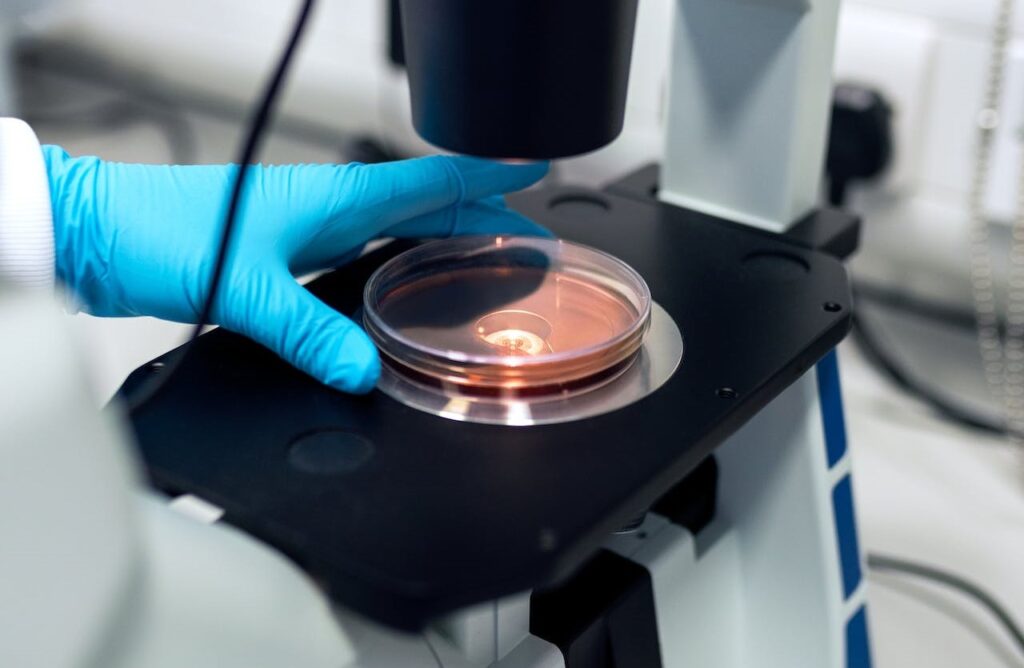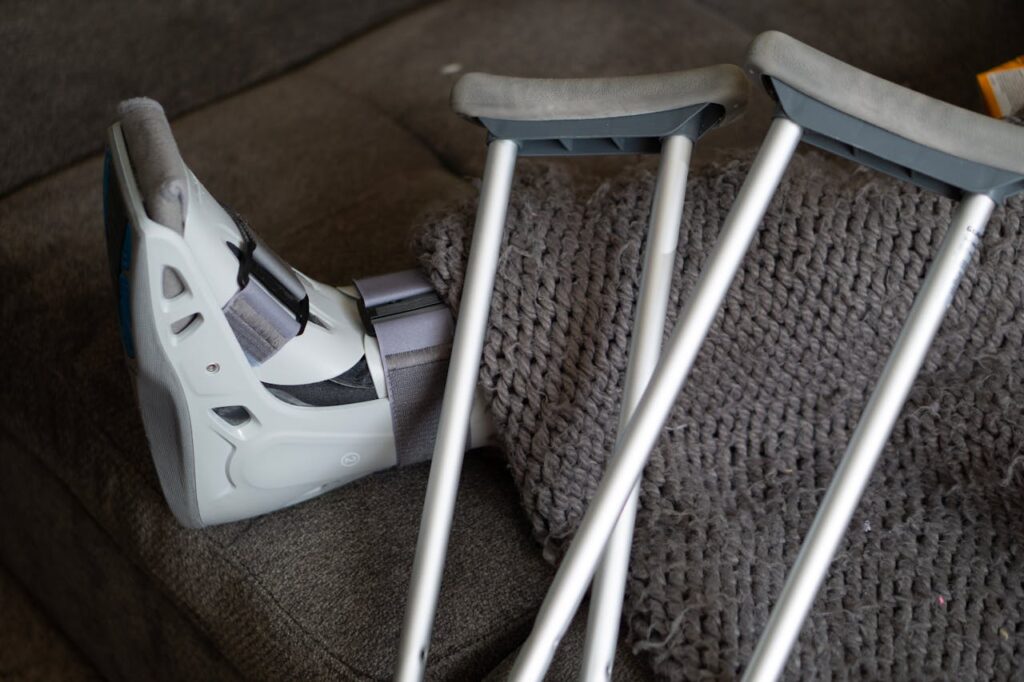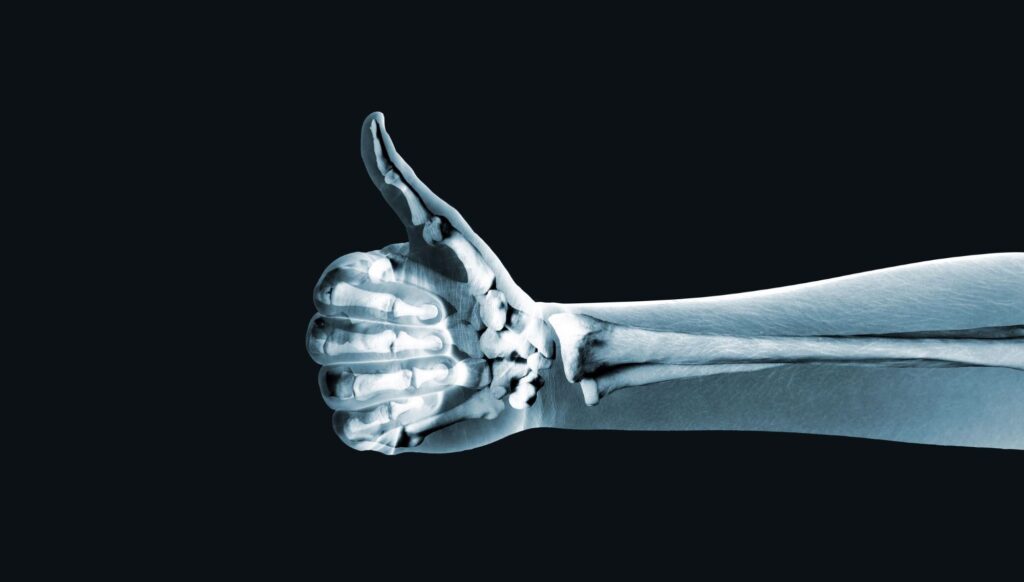Imagine a lab being able to grow tissue from your own body to replace bone lost through damage or illness, and within a matter of weeks be able to fill the gap so well that once it was healed you would never know it had been there.
Israeli medtech company Bonus Biogroup says it has created a way of doing just that – and aims to bring its tissue regeneration innovation to the market in the next couple of years.
The company works in the fields of cell therapy and tissue engineering, growing live human tissue in vitro (outside of the body) “in systems that mimic our body,” Dr. Tomer Bronstein, Bonus Biogroup VP of Business Development, tells NoCamels.

Millions of people lose bone tissue every year for a variety of reasons, he explains, including trauma, war, osteoporosis (loss of bone quality) or cancer.
“Until now, the gold standard for patients who have lost bone tissue was to take a bone from one location in the body and to move it into the graft location,” Bronstein explains.
“For example, if you’re losing bone in the lower jaw, you can take one of the ribs, cut it and put it over there. And it’s being done in millions of patients every year worldwide,” he says.
This is simple to do when the process involves a small amount of tissue, Bronstein says, but using larger amounts of bone means leaving a gap in the original location.
“This was the gold standard until Bonus came to the table,” he says.
The Bonus Biogroup proprietary BonoFill platform involves taking cells from the body that Bronstein calls “damage control” cells, and growing them according to the needs of the individual patient.
“We grow them in vitro to the amount and specification we need within the trauma or gap area, and then within a relatively short time we have enough bone to fill the cavity,” he says.

These cells are known as mesenchymal cells (MSCs), that can both renew themselves and change their function.
“These are the regeneration agents of the body,” explains Bonus CEO Dr. Shai Meretzki. “They are responsible for creating three types of tissue – fat, cartilage and bone tissue… We are taking them from the fat tissue of the patient himself.”
The cells are placed into a bioreactor that recreates the conditions for growth inside the human body and after two weeks the tissue can be injected into the gap in the bone.
Every patient receives a transplant solely made up of their own original cells, which Bronstein explains is the only way to create “seamless” repair with tissue that will stay in the body for life.
“You cannot actually tell where the cavity was: it’s completely healthy, completely normal bone,” he says. “We’re talking about full and complete healing.”
Sign up for our free weekly newsletter
SubscribeMeretzki gives the example of successful bone replacement for a man involved in a vehicular accident that left him with a gap of eight centimeters in the bone in a lower leg.
“This patient underwent three prior failed interventions before being treated by BonoFill,” he tells NoCamels. “He was nearly two years in a wheelchair and at a certain point they considered amputating the leg, because it had no function.”

But just two and a half months after the procedure, Meretzki says, the man was able to jump up and down, and a year and half after the tissue replacement he participated in an Ironman competition.
Another case involved a man who ignored toothache caused by a bacterial cyst that ultimately caused a sizable hole in his lower jaw. BonoFill was placed into the hole, and six months later the man was able to have tooth implants in the regenerated bone.
BonoFill has completed phase two clinical trials for facial reconstructions, with a 90-percent success rate, Bronstein says. The company is now entering phase three trials in the US, where it aims to receive approval from the Food and Drug Administration (FDA).
The use of BonoFill for limbs is still in phase two trials in Israel. The trial, which is taking place in six locations, was recently expanded to Barzilai Medical Center in Ashkelon. The expansion was designed to help treat the victims of the October 7 terror attack and Israeli soldiers who were wounded in the subsequent war against Hamas in Gaza.
“Most of the soldiers are protected by body armor, but the limbs are completely exposed,” Meretzki says. “We are doing what we can in order to assist and facilitate healing in this area as well.”

Founded in 2008, the Haifa-based company has to date raised a reported $60 million in funding from private investment, and today is publicly traded on the Tel Aviv Stock Exchange.
And according to Meretzki, Bonus’ competitors are “somewhere in very early academic research on animals and years behind in terms of development.”
In January, the company received the Cell Therapy Biotech Innovation Award at Advanced Therapies Week, a prestigious international conference held in the US to showcase global innovative treatments.
“Bonus Biogroup is recognized as one of the leading – if not the leading – entities in the world in these areas of cell therapy and tissue engineering,” says Meretzki.
The company is now developing other therapeutics based on the same process, aiming to create blood vessels for transplanted organs to help stop the body rejecting them and to mitigate inflammation that can prove deadly in respiratory diseases such as COVID-19 and pneumonia.
To Meretzki, the future holds boundless opportunities for healing, as long as the ideas are there.
“[First Israeli Prime Minister David] Ben-Gurion said that in order to be a realist in the State of Israel, you need to believe in miracles,” he says.
Related posts

Israeli Medical Technologies That Could Change The World

Harnessing Our Own Bodies For Side Effect-Free Weight Loss





Facebook comments